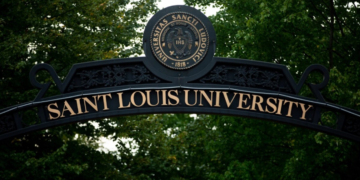Img source: www.hks.harvard.edu
June 18, 2024 Story by: Editor
Recent research published by Harvard professors emphasizes the feasibility of implementing reparations for Black Americans based on existing non-racial compensatory programs across the United States.
The historical context of reparations dates back centuries, with early examples including Belinda Royall’s 1793 petition for a pension and the brief post-Civil War promise of “forty acres and a mule” to freed slaves. Today, municipalities and state and federal bodies, from Boston to Berkeley and California to New Jersey, are increasingly exploring reparations to address systemic racial injustices faced by Black communities.
Harvard Kennedy School researchers Linda J. Bilmes and Cornell William Brooks, in their article “Normalizing Reparations: U.S. Precedent, Norms, and Models for Compensating Harms and Implications for Reparations to Black Americans,” published in the Russell Sage Foundation Journal of the Social Sciences, analyze the historical and economic foundations for reparations. They argue that the U.S. government has a proven track record of implementing compensation programs for non-racial harms, which could serve as a model for reparations to address racial injustices.
The study categorizes various harms endured by Black Americans, spanning housing, education, employment, and health, and compares them to existing reparatory compensation programs. These programs have historically included a range of benefits such as health care guarantees, tax rebates, educational support, housing assistance, job training, and relocation assistance.
Bilmes and Brooks underscore the disparity in compensatory programs, noting that while many groups have received reparations, Black Americans have been largely excluded, exacerbating racial disparities and contributing to the racial wealth gap.
The article also highlights specific instances where the federal government has implemented compensation measures, such as the CARES Act in response to the COVID-19 pandemic, which distributed nearly $6 trillion in relief funds to individuals and businesses. It contrasts these measures with historical exclusions, such as the denial of GI Bill benefits to Black veterans after World War II, which perpetuated racial inequalities.
In conclusion, Bilmes and Brooks advocate for a national commission to study and develop comprehensive reparations programs that address the full scope of racial harms faced by Black Americans. They recommend audits of existing federal compensatory programs and collaboration with historians and economists to establish a fiscal model for reparations. Public education initiatives are also proposed to raise awareness about the historical injustices and the need for compensatory reparations.This study aims to provide a framework for understanding and addressing racial injustices through reparations that are equitable and transformative for Black communities across the United States. Source: HARVARD Kennedy School

















